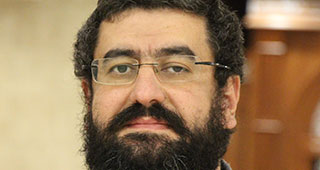Beit Midrash
- Family and Society
- Education
- The Education of Children and Students
The Torah study is dedicatedin the memory of
Rachel Bat Asher
We have a son in his mid-teens who is busy with many activities: counseling in the local youth movement, assisting handicapped children, etc. We feel as if these activities very much detract from his studies, and we have spoken to him about this, but he continues. What should we do?
Answer:
When a young person is busy with positive activity, and gets pleasure from such activity, it is injudicious on the part of parents to force him to concentrate on studies. By doing this, they give him the impression that there is a contradiction between study and true virtuous behavior. This is liable to cause him to reach the conclusion that study, because it interferes with virtuous activity, is undesirable.
More generally, when a young person enjoys doing something, and force is used to prevent him from doing it, he perceives this opposing force as evil. By way of illustration, if during Chanukah some of the children in the community are going on a field trip, but in the Talmud Torah (religious, sometimes rigorous, grammar school) studies continue is usual, it is not right to force a child to go to Talmud Torah and miss the field trip. This will cause him to conclude that the Talmud Torah is wrong, for it prevented him from joining the field trip. This principle is all the more true in the case of your son, for he is not busy with field trips; he is busy with positive endeavors, such as counseling youths and helping the needy.
My first and foremost advice to you is to have trust in your son. Know that you are raising and educating him to choose the right path, and he indeed behaves in such a manner. (I know how difficult it is for parents to see their child grow, and to suddenly entrust them with the responsibility of choosing between good and evil.)
Once a sense of trust has been established, it is possible to go a step further. You may discuss the matter with him and point out that he is involved in two pursuits, both of which are important, and that at his age it is best to focus on studies, because this is not easy to make up for later in life. Conversely, the need and opportunity to perform kindness exists at all times and all ages.
I estimate that if you approach him with the suggestion to limit his extracurricular activities, not to stop them completely, and to devote this free time to studies, there is a good chance that he will acquiesce. I emphasize that it be presented as a suggestion, not a decision on your part. Broadcast that you trust his good judgment, his intelligence, and his sense of responsibility, and that he is certainly capable of making the correct decision.
In this manner you will make him aware of your trust in him and let him take responsibility for the decision. Young people are always happy when their parents treat them like adults. Your son will be able to accept your advice rather than dismiss it offhand on the grounds that you do not understand him. Of course, you must keep in mind from the outset that you will accept any decision he makes, even if it is not in keeping with your advice.
Honor in Education
Rabbi S. Yossef Weitzen | Kislev, 5763
More Love and Less Discipline- the Change in Education Styles
Ein Aya Shabat Chapter A Paragraph 71
Rabbi Ari Shvat | Adar 25 5772






















